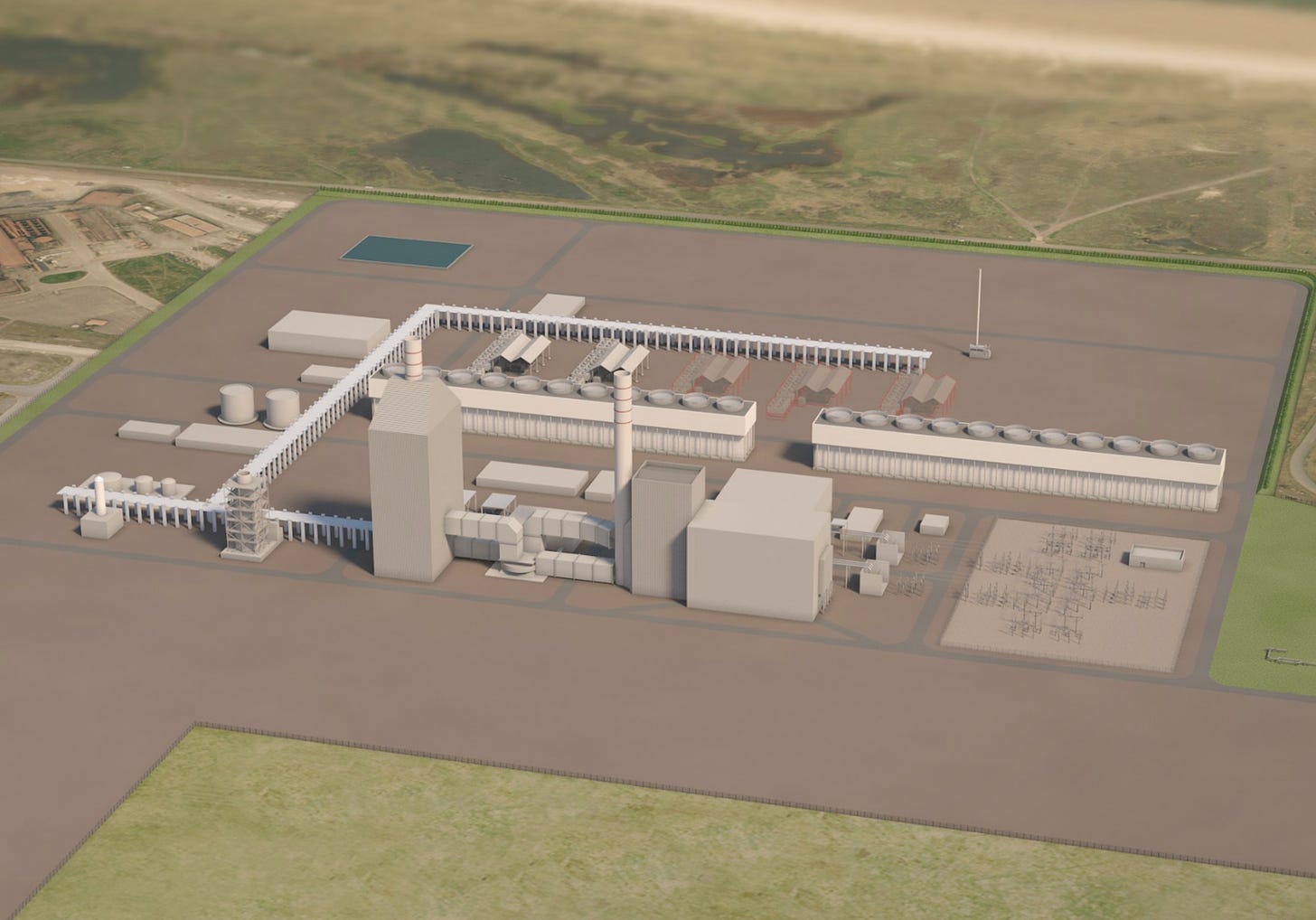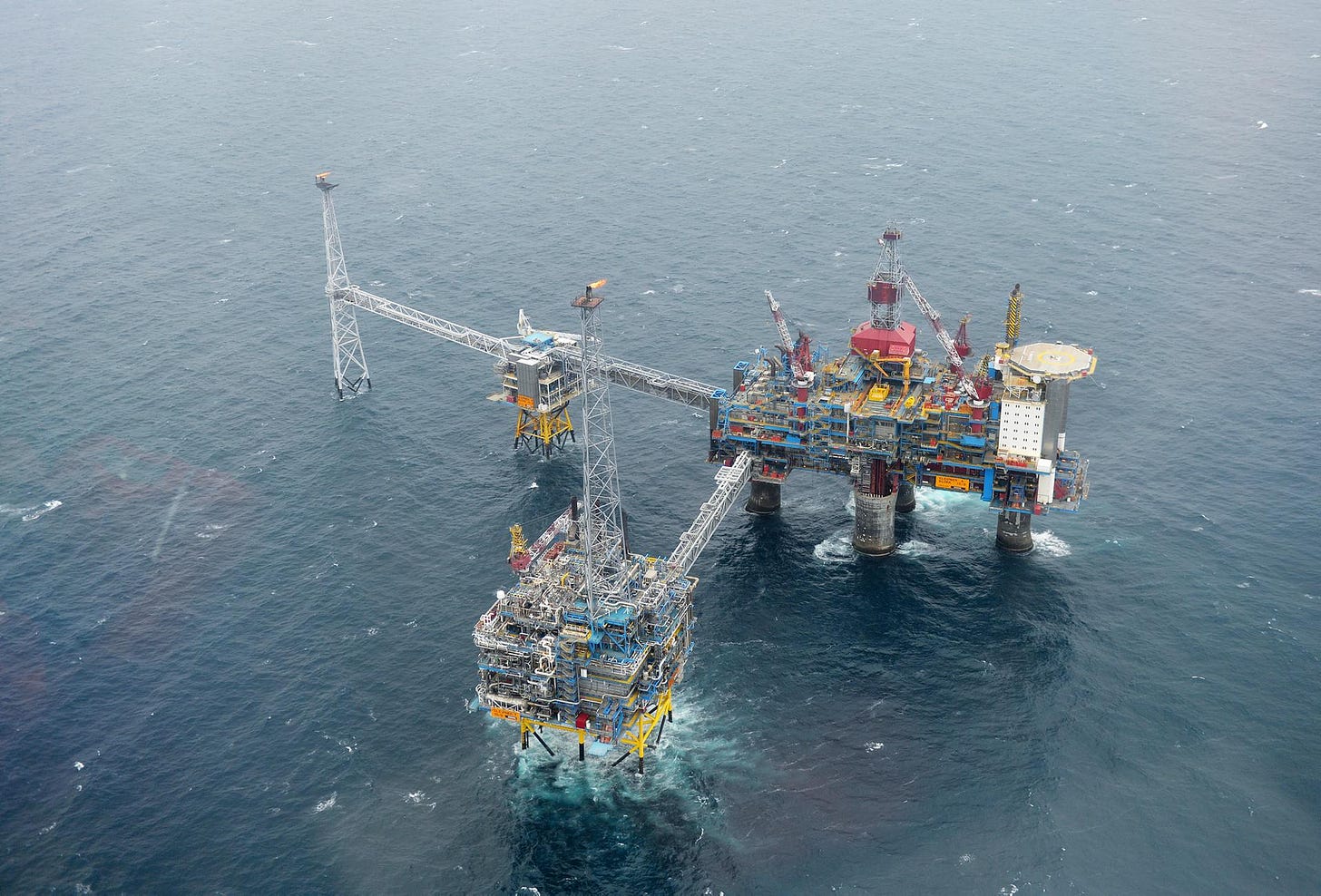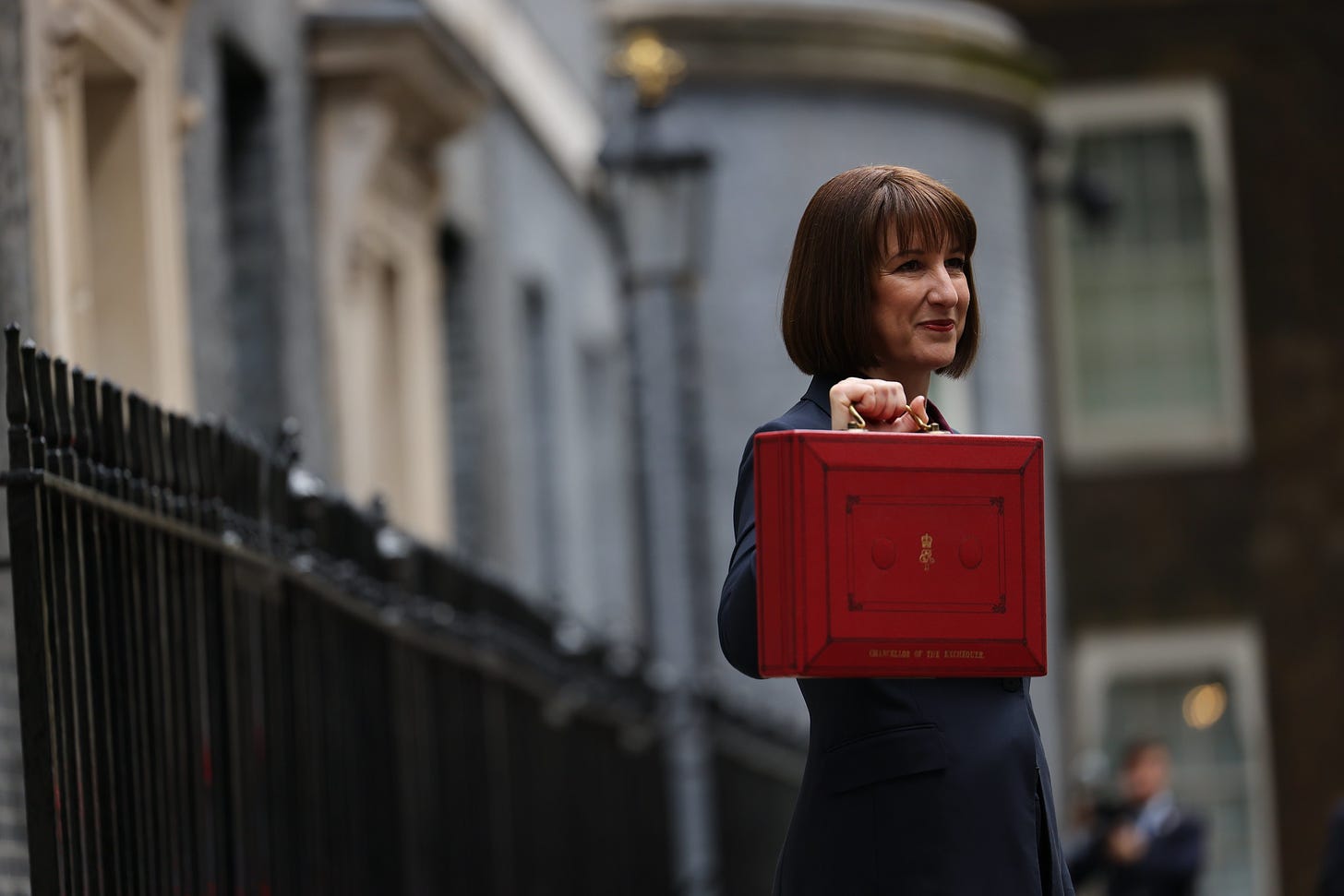Net Zero Teesside developer over-reported carbon captured at flagship project
Plus: What the Budget means for Teesside
Thanks again for reading and supporting independent local journalism. I need to ask a favour, and that is if you enjoy reading The Teesside Lead, please spread the word. Algorithms on certain platforms hide posts which direct traffic to Substack, and the best way to combat that is through word of mouth.
Today’s edition of The Teesside Lead is a day later than the usually scheduled Wednesday release day, in order to assess the impact of yesterday’s Budget, and to gather reaction from across the region.
That Budget, has been heralded by the media ad nauseam as “the first by a Labour government in fourteen years”, or as one outlet desperate not to repeat that worn-out phrase put it, the first in 5,334 days.
For the Tees Valley region, there were no new announcements, although Mayor Ben Houchen claimed the only news for the region was “massive tax rises that will cost every household in our area £1,400”.
That figure isn’t specific to our area, it’s a back-of-fag-packet calculation made by former Tory minister Neil O’Brien who has divided the £40bn increase in tax raised with the number of households in the UK (28 million).
However, we start with one of the Government’s green priorities, and the news that Equinor, one of the partners of Net Zero Teesside on the Teesworks estate, has overestimated its carbon capture capabilities over a five year period.

One of the companies responsible for the planned carbon capture and storage (CCS) scheme at Teesworks has been accused of over-reporting its carbon capture capabilities by 30% at its own flagship project.
Analysis by DeSmog shows the Norwegian gas and oil company, formerly known as Statoil, blames faulty equipment for over-calculating the amount of gas flowing through a pipeline at the Sleipner gas field in the North Sea, over a period of five years.
A footnote in the company’s latest sustainability data states: “Due to a flawed flow transmitter at Equinor’s CO2 injection facilities at Sleipner, the figures for CO2 injected were over-reported in the period 2017-2021.”
Equinor has recalculated the amount of CO2 captured at Sleipner from 2.1 million tonnes down to 1.6 million tonnes over those five years, an overestimation of more than 30%.
It raises questions about the feasibility of the proposed CCS scheme on Teesside, which has just been awarded billions of pounds of funding from the UK Government.
One of the cornerstone projects of the so-called East Coast Cluster is Net Zero Teesside (NZT), a gas-powered power station being built at Teesworks on the site of the former steelworks’ blast furnace. NZT is a joint venture between bp and Equinor which hopes to capture carbon emissions from the power plant and store the gas in underground reservoirs. The plan is for industrial clusters on Teesside and the Humber to be connected to these underground reservoirs to mitigate carbon emissions.
The NZT project is currently subject to a legal challenge led by Dr Andrew Boswell, who claims the previous government’s approval of the scheme was based on "a large double-counting error" of the calculations of greenhouse gases the station may emit.
Talking to The Teesside Lead about the news of Sleipner’s miscalculation, he said Energy Secretary Ed Miliband should review the plans for carbon capture in the UK and pull the plug on the £22bn of funding announced for CCS schemes earlier this month.
"The report on Equinor’s Norwegian operations is just one example of how carbon capture companies falsely report the supposed benefits of their projects. Proposed projects in Teesside include bp and Equinor’s gas power station and bp’s blue hydrogen plant which could both use huge quantities of natural gas imported from as far away as Qatar and Texas,” he said.
He added, “the key issue is the underestimating of emissions of the very powerful climate heating gas methane released in the supply chain from these far flung places. When realistic calculations are made of these methane leaks and of the losses on the carbon capture side, both projects are actually big emitters, and will have a damaging impact on the climate. For this reason, Ed Miliband must now review carbon capture policy, and not fund these projects.”
A Department for Energy Security and Net Zero spokesperson told me:
“Carbon capture, usage and storage is vital to boost our energy independence, and the Climate Change Committee describe it as a necessity not an option for reaching our climate goals.
"The £21.7 billion announced earlier this month represents a major success story for British industry which will support jobs, deliver clean power, and accelerate the UK towards net zero."
The Sleipner project, in the middle of the North Sea, approximately halfway between Peterhead and Stavanger, is the world’s first carbon capture and storage scheme, and has been operational since 1996. It’s often used as proof of concept for the ability to capture carbon emissions at source and store them underground long term.
Dr Marc Hudson is an expert in carbon capture development and policy in the UK. He tells me he feels a strong argument can be made for CCS (carbon capture and storage) in certain industries, “but it’s hard to see the necessary infrastructure, regulation etc coming into existence without oil and gas ‘riding on its coat-tails’.”
He warns of the danger of “mitigation deterrence” in relation to CCS, whereby “the public, and more specifically policymakers - think that a shiny ‘new’ technology is about save everyone, then doing the hard work about reducing emissions from transport, food, house heating etc - becomes less attractive, and easier to kick into the ever-longer grass.”
Equinor refused to comment on the DeSmog story, but they did tell me they “believe that CCS could play a vital role in the UK’s transition to net zero by enabling industrial carbon capture, low-carbon hydrogen production, and power with carbon capture.”
Net Zero Teesside did not respond to a request for comment.
Teesside stories you may have missed…
🗑️ Middlesbrough Council has confirmed it will begin separate food waste collections in 2026
🤖 An auction of Star Wars memorabilia in Stockton has raised £177,000
🖥️ Middlesbrough Council’s website was subject to a suspected cyber attack this week
🌳 Plans have been submitted for an arboretum as part of a new housing development in Darlington
Ending the two-child limit on benefits should be the government’s priority, according to the Chair of the North East Child Poverty Commission (NECPC) in response to this week’s Budget.
Beth Farhat said it was “disappointing” the Budget “did not address why quite so many North East families – both in and out of work – end up with debt deductions or have to turn to the Household Support Fund in the first place: because what should be a safety net for us all provides a wholly inadequate level of support.”
The NECPC’s figures and analysis of child poverty have been quoted repeatedly by local politicians since the general election, and the charity in return repeated Rachel Reeves’ call to “‘invest, invest, invest,’ but for babies, children and young people.”
As covered in the previous edition, 6,000 families in the Tees Valley region are affected by the cap on benefits beyond the first two children, and more than a million children in the UK would either be removed from poverty or live in less deep poverty if the limit were scrapped.
Trussell, which has more than 1,400 food banks in its network across the UK, said the Budget’s announcements “fall short of the action required to truly protect people from being forced to turn to food banks to survive.”
“Looking through the budget today, here’s what there is for the people of Teesside, Darlington and Hartlepool,” wrote Tees Valley Mayor Ben Houchen on social media, in a post accompanied by a blank, grey square.
The implication being, of course, that there is nothing for the only region who elected a Conservative metro mayor, although he may have missed the announcement of government support for EDF’s Tees Green Hydrogen project which will be on the Teesworks site.
The big Budget announcement for metro mayors was integrated settlements. That is lump sums for those mayors and their combined authorities to spend as they wish, as opposed to the old model where different pots were dished out from central government for definitive purposes.
However, an exemption has been written into the Budget’s criteria for combined authorities which are eligible for an integrated settlement specifically targeting the Tees Valley. Authorities which are “subject to… or implementing recommendations from an externally mandated review” are not eligible for the big lump sum for mayors to spend as they wish.
It was only a month ago that Lord Houchen submitted his official response to recommendations made by a review of his combined authority in the wake of alleged corruption.
While no evidence of criminality was found, the independent review decided “a number of decisions taken by the bodies involved did not meet the standards expected when managing public funds.”
Lord Houchen was the poster boy of devolution as far as the last government was concerned. A Tory with a strong popular mandate from the North of England? He could practically walk on water as far as the Conservatives were concerned. This Budget, though, has put him (and subsequently his constituents) firmly on the naughty step.
Congratulations to Darlington MP Lola McEvoy - the only Northern MP on the Treasury Select Committee!
As the new Parliament settles and divvies up the roles on its committees, the 11 person committee to scrutinise the Treasury is stacked with MPs from the South East.
The most-northerly committee member besides Ms McEvoy is Jeevun Sandher who represents Loughborough in the East Midlands.
As always, the cheapest way to support The Teesside Lead is to spread the word. If you enjoy it, let people know!
Alternatively, if you’re able to, you can always take a paid subscription for £4.99 a month, which works out at less than 63p per edition!
If you have any stories, tip-offs or feedback, let me know. I’m not accountable to shareholders or advertisers, just you, the reader.
Get in touch at teesside@thelead.uk or via social media: Bluesky or X-formerly-known-as-Twitter.
Thanks for reading!
Leigh






